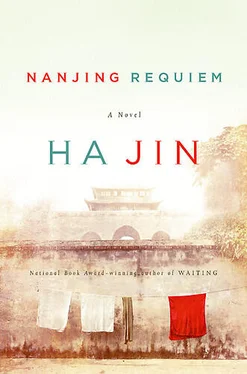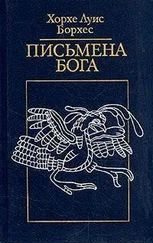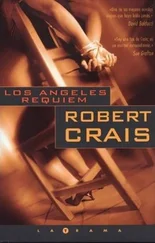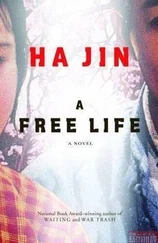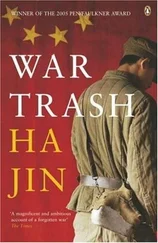While we were eating, Lewis talked about a truce that he and some other members of the Safety Zone Committee had attempted to arrange. The previous day they had proposed a three-day cease-fire, during which the Imperial Army would remain in its positions while the Chinese troops withdrew from the city, so that the Japanese could march in peacefully. In spite of General Tang’s belligerence in public, he was actually anxious to secure the truce. He asked the Safety Zone Committee to send a radiogram to both Generalissimo Chiang and Tokyo through the U.S. embassy, which was on the Panay now. Searle Bates and Plumer Mills, a board member of the Northern Presbyterian Mission in Nanjing, set out with one of General Tang’s aides for the American gunboat anchored upriver a little off Hsia Gwan. The message about the cease-fire was dispatched, and both General Tang and the Safety Zone Committee were waiting restlessly, but Chiang Kai-shek had replied earlier this morning: “Out of the question.”
“Foolish and crazy,” Lewis said about Chiang’s rejection. “He simply would not consider how many lives a truce would save. Now the city is doomed.” Lewis sighed, his mustache twitching as he chewed. He wore wire-rimmed glasses, the small lenses barely covering his lackluster eyes.
“He must have meant to save face,” Minnie said. I knew she liked Generalissimo Chiang, who was a Christian and had once come to Jinling’s commencement. I remembered that occasion, when he’d said he converted because the burden on his shoulders was so heavy that he needed God’s succor. I lifted the porcelain teapot and refilled everyone’s cup.
“Thanks,” Lewis said. “When a city and tens of thousands of lives are at stake, it is insane to worry about one’s own face.”
“The poor soldiers — they’ll all be trapped like rats,” said Minnie.
“Chiang Kai-shek should not have attempted to defend this place to begin with. The only explanation for this imbecility is that he desires to get rid of his rivals in the military.”
All of us knew of his eagerness to diminish his rival General Tang. Chiang’s German advisers had exhorted him not to defend our capital. The terrain around the city was like a sack, its mouth at Hsia Gwan, abutting the south bank of the Yangtze. If the Japanese forces, about 100,000 men in total, attacked from both east and west along the river, they could seize the docks in Hsia Gwan and completely cut the withdrawal route of the thirteen divisions and fifteen regiments defending our capital, about 150,000 men, who could then be squeezed into the “sack” demarcated by the city walls. From a military point of view, it was self-destructive to defend such a place.
Minnie asked Lewis, “So this morning’s peace is just the eye of the hurricane?”
“The Japanese will resume attacking any minute.”
The artillery bombardment of the downtown area started that evening. Huge shells landed near New Crossroads, the center of the city. Then explosions burst out in various places. Time and again shells fell in the Safety Zone, into which the civilians were flocking. All the streets leading to the neutral district were thronged with people carrying their possessions by whatever means they had — wheelbarrows, rickshaws, bicycles, even baby carriages, anything with a wheel on it. Many men bore their things with shoulder poles, and some had bedrolls on their backs. Women held babies, clothes bundles, thermoses. Some old people, too feeble to walk, were carried in large bamboo baskets by pairs of men with long poles. We heard that the camp at the Bible Teachers Training School was already filled to capacity with fifteen hundred people, yet they continued receiving new arrivals. By contrast, Jinling had admitted nearly seven hundred. Numerous families came, but we were adamant about taking in only women and children. Many women, reluctant to be separated from their menfolk, left for the camps that accepted families. Some men cursed Big Liu, Miss Lou, Holly, and me at the front entrance, and one even threw mud on our college’s sign and the steel-barred gate.
Throughout the night refugees kept streaming in. As the other camps were already full, all men now were willing to leave their families at Jinling and seek shelter for themselves elsewhere. Our college was said to be the safest place for women and children, so more and more of them were coming. Our staff, overwhelmed, was aided by dozens of refugee women who offered to help. There were so many arriving that by noon the next day the Faculty House was full, and the Central Building and the Practice Hall were also filling up. Some people, once admitted, wouldn’t go to any of the buildings, instead taking bricks from a construction site nearby to set up their own nests on the sports ground. These rectangular shelters were like giant cooking ranges, covered with pieces of bamboo matting supported by thin beams, which were mostly whittled branches.
In the south machine guns had been chattering without cease since daybreak; in the northeast, where a battle was raging, Purple Mountain was in flames. The smoke often obscured the sun. Time and again bombs exploded somewhere outside the Safety Zone. Japanese bombers were appearing without any alarm being sounded, though once in a while a flak battery or two still fired at them. Whenever a plane flew over our campus, most people would run for cover, but some from the countryside had the false notion that the Safety Zone was bombproof, and they’d stay in the open to watch the planes bombing or strafing something. Luhai and Big Liu had to yell to disperse them into the trenches and dugouts.
All day long, the mother who’d lost her eleven-year-old daughter two days earlier stood behind our college’s front gate, staring at the crowds in hopes of spotting her child. She kept asking people if they’d seen a little girl with bobbed hair and dimpled cheeks. No one had. Miss Lou took a bowl of rice porridge to the woman, who ate it without a word. I thought of having her brought into the campus but decided to let her continue grieving where she was.
THE NEXT DAY heavy artillery pounded the city without letup. On campus our staff was unsettled but kept working. Long sheds were being put up between the two northern dormitory buildings, and under them we let vendors sell food to the refugees. Steamed rice was five cents a bowl and shaobing , wheaten cakes no longer dotted with sesame seeds, were also five cents apiece; no one was allowed to buy more than two of each. The local Red Cross had promised to open a porridge plant here, but it had not materialized yet. Some people, without any food or money on them, had to go hungry. By noon on December 11 we had admitted about two thousand refugees, and so far had been able to accommodate them.
While I was serving hot water with a wooden ladle to the exhausted newcomers, John Magee arrived. I let a staffer take over the work and went up to the reverend. “I just came from downtown,” he said to Minnie and me. “It’s horrible out there, dozens of bodies lying in front of Fu Chang Hotel and the Capital Theater. A teahouse got hit, and some legs and arms were hanging in the air, tangled in the electric wires and treetops. The Japanese will be coming in at any moment.”
“You mean the Chinese troops just gave up resisting?” Minnie spoke with sudden anger, her eyes ablaze.
“I’m not sure,” Magee said. “Some of them had appeared in the Safety Zone, looting stores for food and supplies.”
“They just disbanded?” I asked, enraged too as I remembered the suburban villages they had burned in the name of defending the city.
“It’s hard to tell,” Magee replied. “Some of them are still fighting.”
He told us that a good part of Hsia Gwan was on fire. The Communications Ministry building, which had cost two million yuan to construct and, with its magnificent ceremonial hall, was the finest in the capital, had been gutted and torched. The Chinese army was destroying whatever they couldn’t take with them. They had set fire to many houses and buildings, including the generalissimo’s summer headquarters, the Military Academy, the Modern Chemical Warfare School, the agricultural research laboratories, the Railway Ministry, the Police Training School — all were burning. Probably it was their way of venting their rage, since by now they knew that Chiang Kai-shek and all the generals were gone.
Читать дальше
